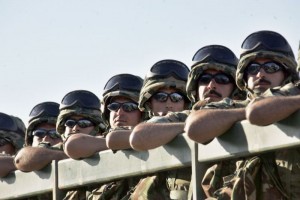New regional waves of terrorism are targeting different countries, with Turkey becoming Daesh’s chief target, according to jordantimes.com.
The night club operation in Turkey shows the terrorists’ ability to eliminate security personnel, even the police, carry out operations and escape, pointing to an “intelligence operation”, a higher level of sophistication of Daesh “traditional operations”, and also the organisation’s ability to penetrate the security system and the community, for, it would be impossible for any terrorist to execute such an operation, escape and hide within the same country without support from local protagonists.
Daesh’s retreat in Syria and Iraq, along with the recent shifts following the battle of Aleppo, makes not just Turkey but Jordan as well face a series of challenges and dangers.
The relocation of fighters from one front to another increases the possibility of more individual operations and the organisation’s desire to create new hot spots.
Jordan’s most critical challenge is the direction Daesh will follow after Aleppo, as it might move towards the southern Syrian border, placing increased pressure on Jordan and increasing the possibility of repeated attacks.
If that is the case, there will be repeated attempts to disrupt the national security and create an atmosphere of internal disputes, which the organisation will seek to exploit.
A serious danger will be posed by the continuous regeneration of fighter cells and the activation of dormant cells that have been able to build networks of allies in the areas where they are located.
These cells will be isolated once the central command of the organisation falls, and they might seek to execute individual actions taking advantage of the surprise element, aiming at causing most damage with minimal cost.
This means uncomplicated operations such as shooting at a security officer or striking a crowded civilian area using primitive techniques.
The increasing pressure on the fighters in Syria, and the closure of the Turkish borders after the country’s political shift might push the fighters to target new areas and find exit routes they can use to escape.
Thus, the challenges Jordan is facing are enormous. The country has moved to an open and direct confrontation stage with terrorist organizations, so it has to change the manner in which it deals with these groups.
The recent assaults that targeted Jordan indicate an increase in the number of operations and some change in method and objectives, but still the target, so far, is the security personnel, not civilians.
They should be dealt with in a firm manner and possible confrontations have to be that foreseen to be prevented.



